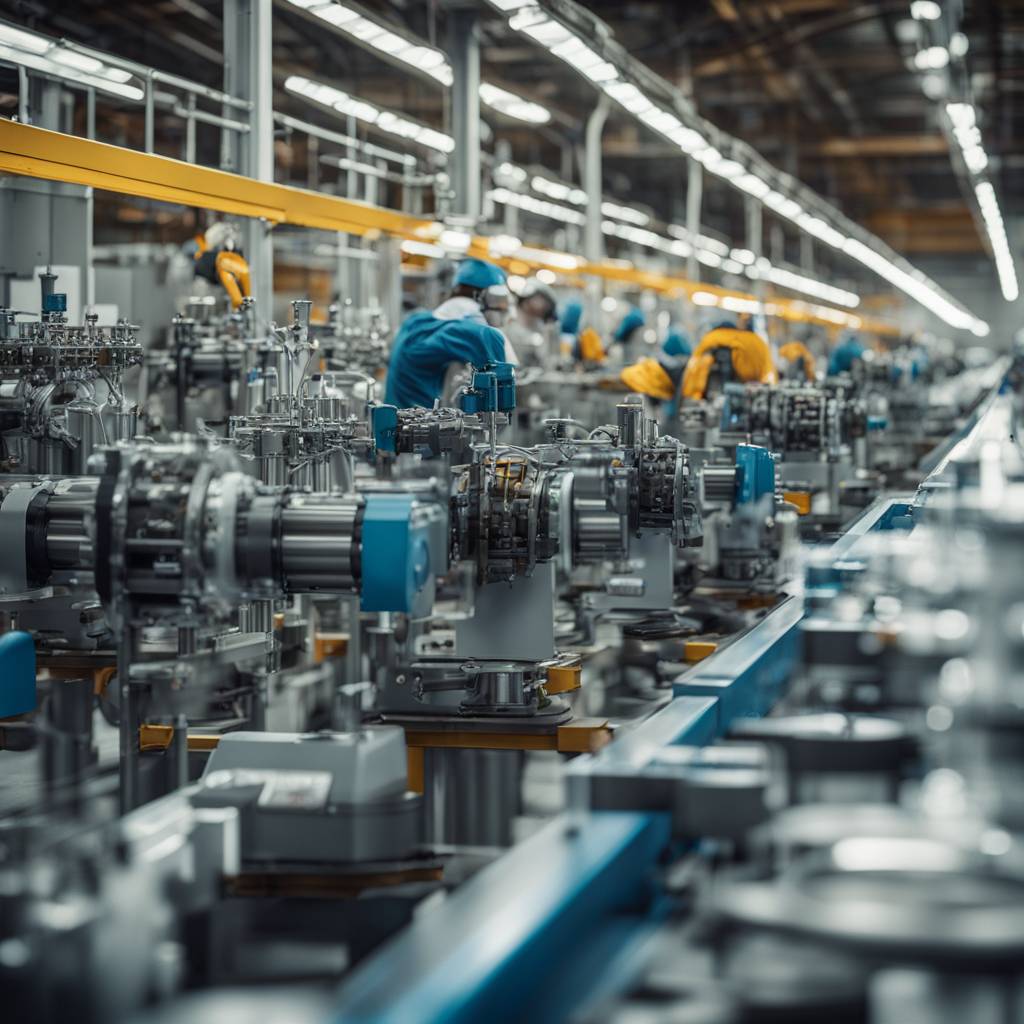Germany’s manufacturing sector is facing challenges as factory orders were found to be lower than expected in February. While there was a slight increase of 0.2% from the previous month, this fell short of analysts’ forecasts. The growth was mainly driven by increased demand in the machinery and equipment sector, as well as the chemical and pharmaceutical industries. However, senior economist Ralph Solveen from Commerzbank pointed out that excluding large orders, the results show a decrease of 0.8% on the month. Quarterly differences also reveal a decline in new orders if big orders are excluded, indicating a challenging period for the German industry.
Despite the slight growth in factory orders, Germany is still facing economic challenges. The country’s economy shrank by 0.3% in the fourth quarter of 2023 and over the entire year, making it the worst performing major economy globally. With expectations of entering another technical recession in the first quarter of 2024, Germany’s industrial sector is struggling to recover. In contrast, other European countries like France and Spain have seen increases in industrial production. France recorded a 0.9% monthly rise while Spain saw a 0.7% increase, signaling some positive developments in the manufacturing sector in these countries.
Germany’s disappointing factory orders come at a time when the rest of Europe is also facing stagnation due to high interest rates. The underperformance of the German economy, with a lack of significant growth in the industrial sector, is a cause for concern. The country’s statistics agency reported that excluding large-scale orders, new orders are down 2.0% in the period from December 2023 to February 2024 compared to the previous three months. With the possibility of another recession on the horizon, Germany’s industrial sector is struggling to generate the growth needed to boost the economy and create stability.
The marginal uptick in Germany’s factory orders in February was driven by increased demand in specific industries, including machinery and equipment, as well as chemical and pharmaceutical sectors. However, the overall performance of the manufacturing sector remains below expectations, with analysts predicting a higher growth rate for the month. The challenges faced by the German industry are exacerbated by the country’s overall economic performance, which has been lackluster in recent quarters. This lower-than-expected increase in factory orders indicates the continued difficulties faced by Germany’s industrial sector in generating substantial growth.
The lack of significant growth in Germany’s manufacturing sector is reflected in the recent factory orders data, which showed only a marginal increase in February. Despite a slight uptick in demand for machinery, equipment, and chemical-related industries, the overall performance fell short of analysts’ forecasts. With expectations of entering into another recession, Germany’s industrial sector faces significant challenges in recovering and driving economic growth. In contrast, other European countries like France and Spain have shown some improvement in industrial production, underscoring the diverging trends in the manufacturing sectors across Europe.









